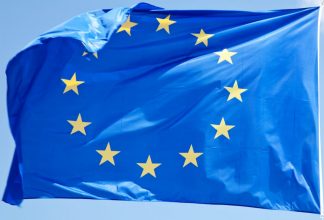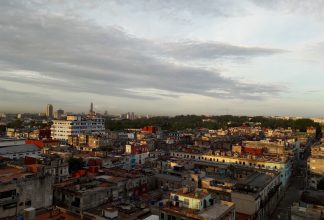The EU-Cuba Agreement, and its Implications
Letter #9 by Alberto Fumero Batista.
In July 2019, Civil Rights Defenders invited Cuban human rights defenders and civil society organisations to contribute with texts on how the European Union should work towards Cuba. This letter comes from Alberto Fumero Batista.
The EU-Cuba Agreement, and its Implications
To analyse or evaluate the Political Dialogue and Cooperation Agreement between the European Union and Cuba, the first question is how committed are the parties to the promises being made, because it would not be the first nor the last time that the letter of the agreement, its considerations or contents are abysmally far from its practical implementation. From there comes the old saying about “paper can support anything”.
I say this because the text of the agreement, although ambiguous in some aspects, is generally precise when defining its objectives and the motives that led to its creation, particularly the need to move the Cuba-EU relationship forward, within the framework of a new international context, after putting an end to the Common Position that directed those policies for a decade.
As a matter of fact, that is positive, because our country has been persecuted for years by a policy of economic degradation by the US government, and today it needs economic development more than ever. And for that to occur, the garnering of foreign capital and industrial modernisation are necessary. All of this would be achieved, without a doubt, with this accord, which would also benefit the EU, which is occupying more and more future-leaning geostrategic positions and increasing its spheres of influence in the Caribbean.
But there are other issues in the agreement, like the human rights situation and their protection by both parties, that tend to be more difficult to manage, more so for Cuba. Since the Cuban government it’s a dictatorial one, and it is used to violating human rights on a permanent basis, it is unable to implement a coherent proposal to eradicate the systematic violations in its territory, aware that it lacks the political will to solve the problem.
If the parties are truly interested in making this issue a priority, they should be more responsible with the systematic monitoring of those violations in Cuba. During the period of negotiations of the agreement with the European Parliament, there were many violations, but apparently this was not sufficient to withdraw the agreement from the negotiation table; or simply put, other interests were more important. The truth is that the permanent persecution of independent civil society organisations, dedicated to the ideals of true democracy, continues to be the norm and not the exception of how the government’s repressive forces operate.
At least a dozen of rights stipulated by the Universal Declaration of Human Rights are systematically violated in our country. Also, there are no judicial guarantees to seek protection or restitution when they are violated. Among the many violations that occur daily in Cuba for ideological reasons, what stands out is the lack of freedom of thought and conscience; of expression or opinion; of the right to fair trial with independent and impartial judges; of freedom of movement and residing anywhere in the world, including Cuba; of manifestation and association; and of other guarantees, like not being the object of cruel and degrading treatment or arbitrary detention.
Currently, more than one hundred of Cuban nationals, members of human rights and independent civil society organisations, have created in social media a group called “Regulados”, after having been prevented from resourcing to a fair and impartial court and from having access to a judicial recourse. “Regulados” are those people who are banned from leaving the country, due to political motives; or in other words, for having criticised the government. The ban is put in place without a proper and legal court order. This is the context that exists while the permanent approval of the agreement is at hand.
The promoters of the agreement want other nations to join the initiative and ratify it. In that case, the question is whether the European Union feels good about reaching agreements with flagrant violators of human and civil rights. Based on its background, it seems it would have no problem whatsoever, but would it accept similar policies from a Member State of the EU? Evidently, the answer would be no, because otherwise it would imply forgetting sadly renown figures like Hitler, Franco, Salazar and other dictators that ravaged Europe last century.
Then how are we to interpret the exciting and celebratory atmosphere, in front of television cameras, of EU Foreign Relations Commissioner, Federica Mogherini, and our minister of Foreign Affairs, Bruno Rodriguez Parrilla?
They were euphoric about the progress of the EU-Cuba agreement. Evidently, they did not care that during every moment of the negotiations, a Cuban was detained arbitrarily, or his or her house was raided, and their equipment and assets were seized. Or, Cubans were being threatened and intimidated by the PNR about their irreverent behaviour or accused of a petty crime to hide the fact that the government is suppressing the opposition and freedom of expression.
Do these people care about human rights in Cuba when dozens of Cubans are offended, called mercenaries and traitors, accused of not being properly born, of being poorly paid, and other improprieties for simply having ideological differences?
And why didn’t the High Commissioner denounce this in Cuba, if human rights and basic liberties were always part of the agreement?
Luckily, about two million Cubans, by abstaining, voting against, leaving their votes blank or annulled, expressed opposition to a Constitution that became an instrument of domination and concentration of power, and a monument to intolerance and exclusion for ideological reasons, instead of being the essence of the Law of Laws.
We also have, luckily, people like Jose Daniel Ferrer Garcia, the leader of UNPACU and a fervent defender of human rights. He was a prisoner of conscience and now stands firm in defence of his ideals, betting on a better future for Cuba, even though that means he will be separated from his family.
We also have Alejandro González Raga, former prisoner of conscience, and like Ferrer, part of the Group of 75. From his exile in Spain, he is one of the main leaders and creators of the Observatorio Cubano de Derechos Humanos (Cuban Human Rights Observatory). Despite suffering exile, and the prohibition of visiting his family in Camaguey, he is standing for his ideals and is one of the main observers of the human rights situation in Cuba.
Fortunately, the list of good people who want a better future for our nation is endless.
And since we speak of lists, the EU should take note of the open letter sent to Michele Bachelet, UN High Commissioner for Human Rights. It was signed by thousands of Cubans inviting her to investigate the human rights situation in the country.
In conclusion, and returning to the topic at hand: If I am asked to make a suggestion about the political and cooperation agreement, I would ask the countries that have not ratified it, to not ratify it. More important than commerce and profits are basic principles and values that are the pillars of modern society, such as human rights.
In my humble opinion, whomever violates them in a systematic and arrogant manner does not deserve to be part of an agreement.
Alberto Fumero Batista, Cuban Law Association.
About Alberto Fumero Batista
Alberto Fumero Batista is a lawyer specialised in criminal law from Universidad de Oriente in Santiago de Cuba. He worked for 20 years in the Bufetes Colectivos and participated in cases such as Operación Mazeta, Coraza Popular and the Black Spring of 2003. In the latter, he represented José Daniel Ferrer, leader of UNPACU. At the end of 2008, he was removed from the Bufetes Colectivos and five years later he joined the Asociación Jurídica Cubana (Cuban Law Association), where he provides advice to people and civil society groups.

